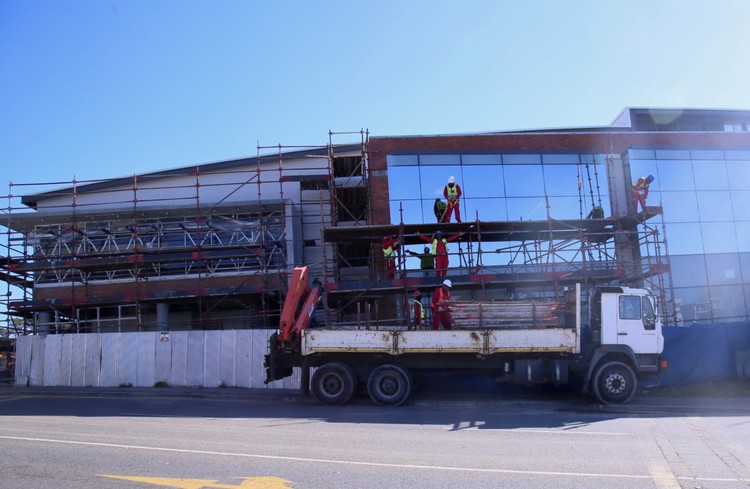Relief on the way for Western Cape’s overstressed post-mortem facilities
New R281-million Forensic Pathology Facility in Observatory has double capacity of Salt River
Dr Gavin Kirk of the Western Cape Forensic Pathology Services conducts on average three post-mortems a day. He works at the Salt River mortuary which has 12 doctors on its staff, two of whom are currently away for training.
However, only six doctors can work at any time because of space restrictions. The mortuary can therefore handle a maximum of 18 cases a day. Besides the space limitations, Kirk says lighting and ventilation are poor.
From 1 to 15 July, the facility received 198 cases, says Professor Lorna Martin, head of the forensic pathology service in the Western Cape.
The Salt River Forensic Pathology Services facility is to be replaced by the new R281-million purpose-built Observatory Forensic Pathology Facility (FPF) scheduled to open by May 2020.
Forensic pathology facilities at Tygerberg and Salt River have had to cope with a rising number of murder cases in the metro. Of the 1,744 cases of unnatural deaths examined in the metro so far this year, 943 were from gun violence, according to Martin.
Between 2016 and 2017, cases of gunshot deaths examined at Cape Town’s forensic services increased by over 56%. The large quantity of cases to be examined created a backlog of autopsies. As a result, forensic services could not prioritise the autopsies of Muslim bodies, and this delayed Muslim burials. (The Muslim religion requires the body of the deceased to be buried before sunset on the day of the death.)
In 2017, the Western Cape Department of Health admitted that it “has not been able to maintain the expected 24-hour release period for Muslim bodies. The current average period for the release of bodies is six to seven days.”
Currently, the average turnaround time at the Salt River mortuary from admission of body to examination stands at four days.
Located near the entrance of Groote Schuur hospital, the new 10,399m2, three-storey FPF aims to address the current stresses on the pathology service.
Included in the new facility are 26 autopsy tables, 360 refrigerated body spaces, 180 admission fridges and 180 dispatch fridges. The Salt River FPS, in comparison, has ten autopsy tables, 150 permanent refrigerated body spaces, and 30 temporary refrigerated body spaces.
The completion of the Observatory Forensic Pathology Facility will better integrate the work of Forensic Pathology Services, the National Health Laboratory Service, and the University of Cape Town Medical School.
There will also be two teaching and training dissection suites for students and academic staff.
Despite having more space at the new facility, Kirk acknowledged that staffing is still a separate issue. “Our colleagues across the way at Tygerberg [Forensic Pathology Services] - both of us are really doing far more autopsies per pathologist than we should be doing,” said Kirk.
Support independent journalism
Donate using Payfast

Don't miss out on the latest news
We respect your privacy, and promise we won't spam you.
Next: Daily struggle to get water in Pietermaritzburg location
Previous: PE residents come out in numbers to demand better policing
© 2019 GroundUp.
This article is licensed under a Creative Commons Attribution-NoDerivatives 4.0 International License.
You may republish this article, so long as you credit the authors and GroundUp, and do not change the text. Please include a link back to the original article.

